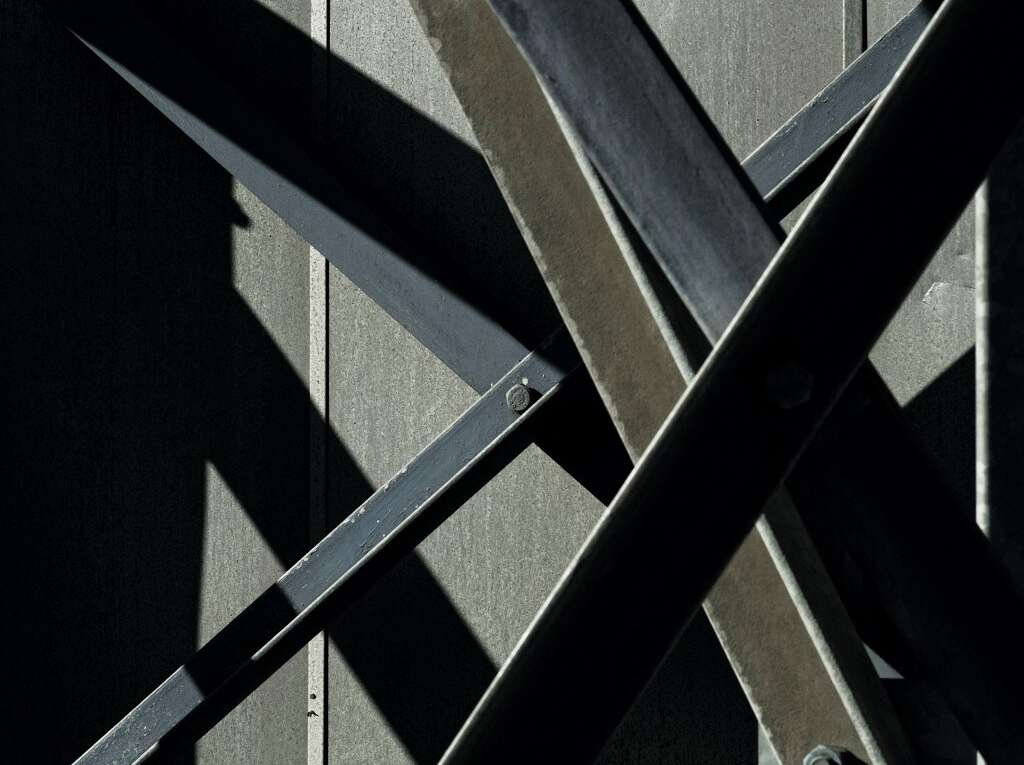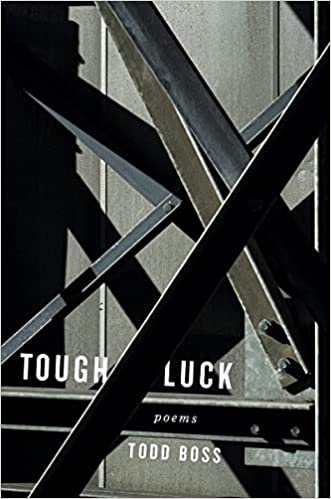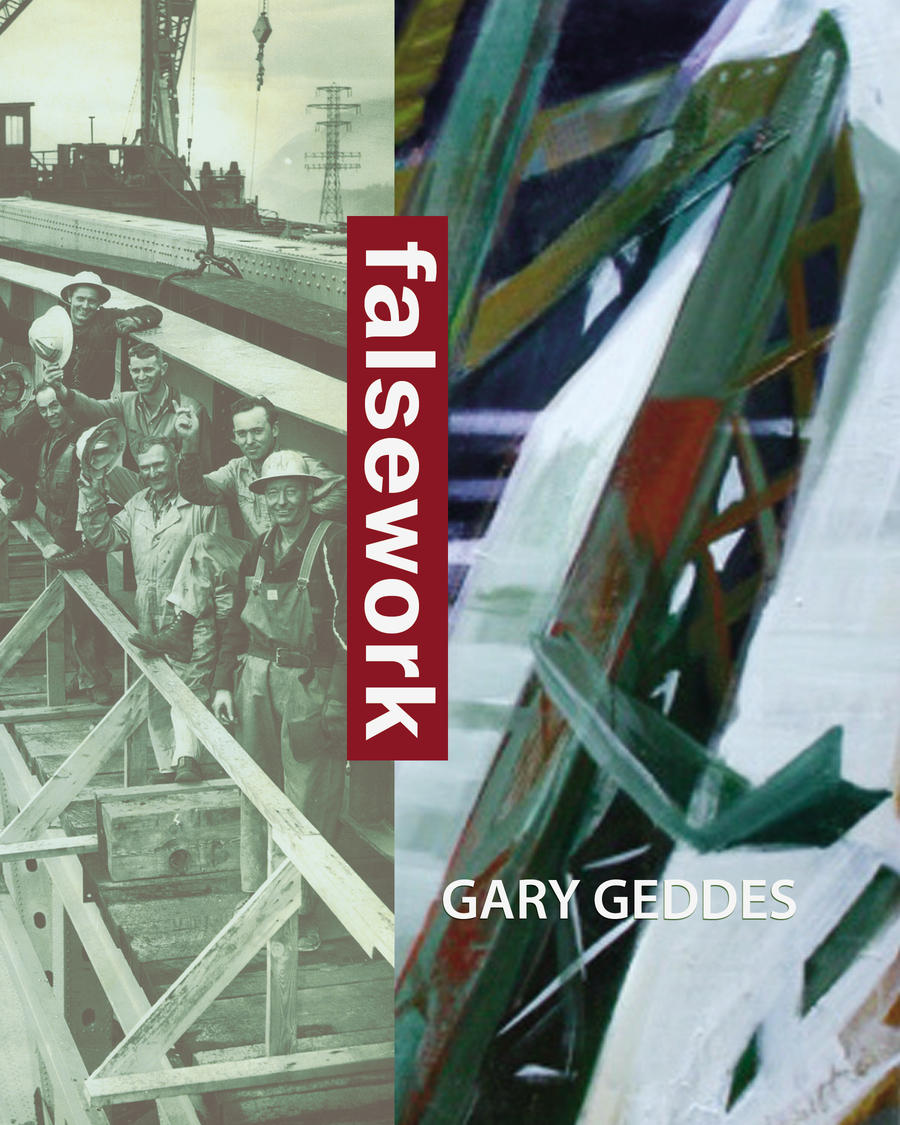
Like many Pittsburghers, I barely missed traveling the Fern Hollow Bridge on Friday, Jan. 28. If it had been a Tuesday or Thursday, I would have been driving to work, crossing that bridge at exactly the time it fell into the ravine in Frick Park.
For now, we send our wishes for healing to the ten injured survivors. We wait for the official cause of collapse from the NTSB, and worry about the poor rating of 175 other Pittsburgh bridges. And we try to get back to work. Imagine my surprise when during the course of my regular cataloging, I stumbled across not one, but two books of poetry about, as the Library of Congress calls it, “Bridge failures.”
Tough luck: poems
Todd Boss (Norton, 2017)
 "Tough luck: poems" describes, in the first part, details of farm life, antiques restoration, old-time expressions like “tough luck,” “knuckle down,” and “toughen up,” as well as his disintegrating marriage. I really enjoyed this poet’s skill with internal rhyme and interesting word choices, and I wanted to read the poems aloud to hear their music. The central section, “Fragments for the 35W Bridge,” tells the harrowing story of an eight-lane highway bridge that collapsed during the evening rush hour in downtown Minneapolis on August 1, 2007. Thirteen people were killed and many more were injured. Todd Boss narrowly escaped, having crossed the bridge twenty minutes before. As he writes in his preface, “Something terrible had been made abundantly apparent. Apparently there was danger in the everyday.”
"Tough luck: poems" describes, in the first part, details of farm life, antiques restoration, old-time expressions like “tough luck,” “knuckle down,” and “toughen up,” as well as his disintegrating marriage. I really enjoyed this poet’s skill with internal rhyme and interesting word choices, and I wanted to read the poems aloud to hear their music. The central section, “Fragments for the 35W Bridge,” tells the harrowing story of an eight-lane highway bridge that collapsed during the evening rush hour in downtown Minneapolis on August 1, 2007. Thirteen people were killed and many more were injured. Todd Boss narrowly escaped, having crossed the bridge twenty minutes before. As he writes in his preface, “Something terrible had been made abundantly apparent. Apparently there was danger in the everyday.”
That shock, that catch in the breath, Boss demonstrates in 35 “fragments” with more simple diction and one-word-per-line poems, letting your eyes and your stomach fall breathlessly down the page. Here the rhymes clinch the poems in a desperate search for a handhold, for closure, as:
16
Not
water
but
air’s
where
the
fallen
fall
first.
not
landing,
but
numbing
to
the
fact
that
landing
is
coming,
is
the
worst
part
of
falling.
Not
losing
a
loved
one
but
calling
and
calling.
The 35 poems gracefully explore many aspects: the ordinary lives of the victims, Boss’ relief at being safe, the “universal/scares:/nightmares/of/falling”, an 1878 flour-dust explosion at a Minneapolis mill that killed eighteen, a bridge collapse that killed 75 workmen in Quebec, and the new Minneapolis bridge that seems “glib,” as if “it’s/got/no/heart.” So many arresting images, like the “wind-/wrangled/ribbon” of the fallen bridge, kept bringing me back to these poems and to others in the book. Transitioning to the third section took me a while, after the intense focus of the bridge poems, but I enjoyed Boss’ poems about Eve eating the apple, about working with driftwood, grinding coffee, fly-fishing -- tactile, sensual images of practical actions and again, lots of fun with unexpected rhymes.
Falsework
Gary Geddes (Goose Lane Editions, 2007)
 "Falsework" pays tribute to the eighteen ironworkers and later, one diver, killed when Vancouver’s Second Narrows Bridge collapsed during construction on June 17, 1958. Geddes constructs not a history but a “polyphonic narrative, a series of diverse voices,” and the result is dramatic and intimate. The term “falsework” refers to the two temporary structures that take the weight of the advancing spans during construction, which according to one account were, amazingly, made of plywood. Throughout the book, this falsework and the bridge itself become metaphors for the tenuous connections and breaks within families, between workers and bosses, and so on. Geddes includes the stories of a resentful widow, a grieving father, ironworkers who survived, engineers, lawyers, union members and his own father, a Navy diver who, according to family lore, had been called to search for bodies in the wreckage.
"Falsework" pays tribute to the eighteen ironworkers and later, one diver, killed when Vancouver’s Second Narrows Bridge collapsed during construction on June 17, 1958. Geddes constructs not a history but a “polyphonic narrative, a series of diverse voices,” and the result is dramatic and intimate. The term “falsework” refers to the two temporary structures that take the weight of the advancing spans during construction, which according to one account were, amazingly, made of plywood. Throughout the book, this falsework and the bridge itself become metaphors for the tenuous connections and breaks within families, between workers and bosses, and so on. Geddes includes the stories of a resentful widow, a grieving father, ironworkers who survived, engineers, lawyers, union members and his own father, a Navy diver who, according to family lore, had been called to search for bodies in the wreckage.
The book includes black and white photos of the bridge under construction and after the collapse; one shows the haunting faces of the ironworkers smiling and playing with their hard hats. “Stay away from archives if you don’t like the taste of death” begins one prose poem, and the photos described in that piece, while not in the book, linger in our minds: “a group of firemen, one with his face turned away, kneeling and bent over a drowned ironworker. A perfect summer day: sunny, clear sky, no wind. How gently the rescuer places his hand on the dead man’s chest.”
The ironworkers’ voices in Geddes’ poems are rough, profane, plain, and effective: “I could feel the angels/brush my shoulders as I walked/the beams. We knew our business.” (“High Steel”) Many poems depict the workers’ fall, reminding me of Boss’ one-word-per-line poems but proceeding a bit more slowly, as in “Gravity, Gravitas”: “I might have been falling/in slow motion, given/the kaleidoscope of images.//I’d just released my tool belt/when I hit the water.”
The poems in both books bring us back to the amazing fact that the Pittsburgh bridge collapse caused no fatalities and no life-threatening injuries. We were lucky this time. I only hope our luck holds out, the survivors recover, and our other bridges receive the life-saving repairs they need.
Reviewed by Jan Hardy, Library Specialist
Feature image from cover art of Tough luck: poems by Todd Boss (Norton, 2017)
